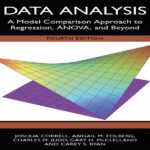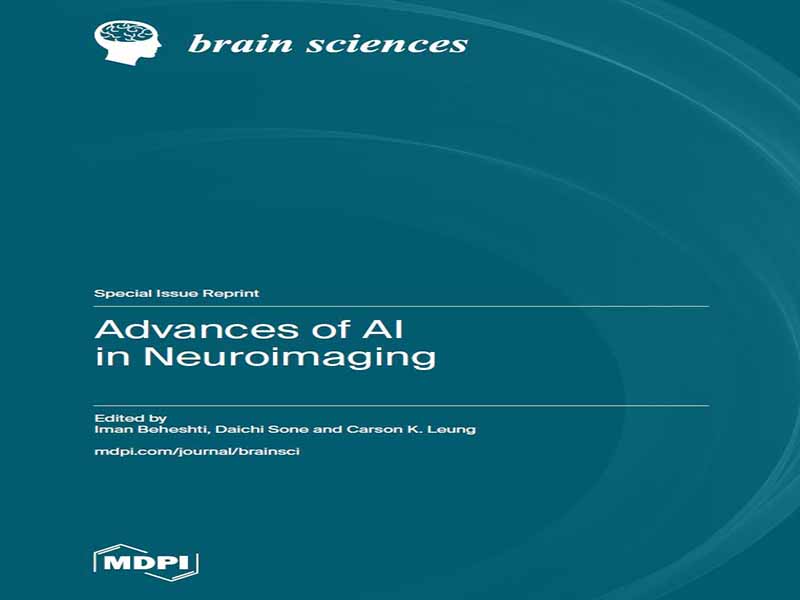- عنوان کتاب: Advances of AI in Neuroimaging
- نویسنده: Iman Beheshti, Daichi Sone, Carson K. Leung
- حوزه: کاربرد هوش مصنوعی در پزشکی
- سال انتشار: 2025
- تعداد صفحه: 302
- زبان اصلی: انگلیسی
- نوع فایل: pdf
- حجم فایل: 7.29 مگابایت
تصویربرداری عصبی [1-3] یک حوزه به سرعت در حال تحول است که شامل استفاده از تکنیکهای تصویربرداری غیرتهاجمی برای تجسم و مطالعه ساختار و عملکرد مغز انسان میشود. این حوزه در طول دهه گذشته پیشرفتهای متحولکنندهای – و همچنین پیشرفتهای قابل توجهی از نظر دقت، سرعت و کارایی شناسایی اختلالات مختلف مغزی – را تجربه کرده است که عمدتاً ناشی از پیشرفتهای فناوری و نوآوریهای محاسباتی است. در میان این پیشرفتها، هوش مصنوعی (AI) به عنوان ابزاری محوری ظهور کرده است و رویکردهای جدیدی را برای بررسی ساختار و عملکرد مغز به محققان و پزشکان ارائه میدهد [4-10]. مدلهای هوش مصنوعی به طور گسترده در تجزیه و تحلیل و تفسیر دادههای تصویربرداری عصبی به کار گرفته شدهاند و به محققان و پزشکان در تشخیص، درمان و نظارت بر بیماران مبتلا به اختلالات عصبی و روانی کمک میکنند. این شماره ویژه با عنوان “پیشرفتهای هوش مصنوعی در تصویربرداری عصبی”، به منظور ارائه بستری برای تحقیقات پیشرفته در تقاطع هوش مصنوعی و تصویربرداری عصبی، با هدف انقلابی در علوم اعصاب و مراقبتهای بهداشتی، طراحی شده است. انگیزه اصلی پشت این شماره ویژه، افزایش تقاضا برای راهحلهای نوآورانه برای پرداختن به پیچیدگی دادههای تصویربرداری عصبی، به ویژه در زمینه اختلالات عصبی و روانی بود. تکنیکهای هوش مصنوعی، مانند یادگیری ماشین (ML) [11،12] و یادگیری عمیق (DL) [13]، پتانسیل بینظیری برای کشف نشانگرهای زیستی، پیشبینی بیماری و استراتژیهای درمانی شخصیسازیشده ارائه میدهند. با افزایش شیوع اختلالات مغزی، نیاز به ابزارهای تشخیصی دقیق و کارآمد بیش از هر زمان دیگری ضروری است. این شماره ویژه در پی برجسته کردن پیشرفتهای فنی و پیامدهای عملی آنها برای مراقبت از بیمار و سیستمهای مراقبتهای بهداشتی است. این مقالات طیف وسیعی از روشهای تصویربرداری عصبی، از جمله تصویربرداری تشدید مغناطیسی (MRI)، توموگرافی انتشار پوزیترون (PET)، توموگرافی کامپیوتری (CT) و الکتروانسفالوگرافی (EEG) را در بر میگیرد. با پرداختن به چالشهایی مانند پیچیدگی دادهها، تفسیرپذیری مدل و مقرونبهصرفه بودن، تحقیقات برجسته بر نقش ضروری هوش مصنوعی در پیشرفت تصویربرداری عصبی و کاربردهای آن تأکید میکنند.
Neuroimaging [1–3] is a rapidly evolving field that involves the use of non-invasive imaging techniques to visualize and study the structure and function of the human brain. This field has experienced transformative progress—as well as significant breakthroughs in terms of the accuracy, speed, and efficiency of identifying various brain disorders—over the past decade, largely driven by technological advancements and computational innovations. Among these, artificial intelligence (AI) has emerged as a pivotal tool, offering researchers and clinicians novel approaches to explore the brain’s structure and function [4–10]. AI models have been widely applied in the analysis and interpretation of neuroimaging data, aiding researchers and clinicians in diagnosing, treating, and monitoring patients with neurological and psychiatric disorders. This Special Issue, titled “Advances of AI in Neuroimaging”, was conceived to provide a platform for cutting-edge research at the intersection of AI and neuroimaging, aiming to revolutionize neuroscience and healthcare. The primary motivation behind this Special Issue was the increasing demand for innovative solutions to address the complexity of neuroimaging data, especially in the context of neurological and psychiatric disorders. AI techniques, such as machine learning (ML) [11,12] and deep learning (DL) [13], offer unparalleled potential for biomarker discovery, disease prediction, and personalized treatment strategies. With the prevalence of brain disorders increasing, the need for accurate and efficient diagnostic tools is more pressing than ever. This Special Issue sought to highlight both technical advancements and their practical implications for patient care and healthcare systems. The contributions span a range of neuroimaging modalities, including magnetic resonance imaging (MRI), positron emission tomography (PET), computed tomography (CT), and electroencephalography (EEG). By addressing challenges such as data complexity, model interpretability, and cost-efficiency, the featured research underscores the indispensable role of AI in advancing neuroimaging and its applications.
این کتاب را میتوانید از لینک زیر بصورت رایگان دانلود کنید:
Download: Advances of AI in Neuroimaging





































نظرات کاربران